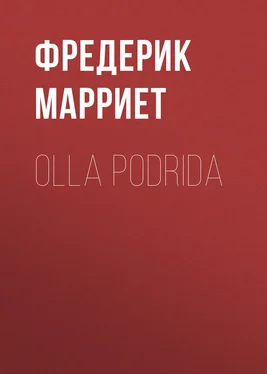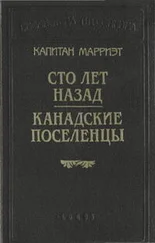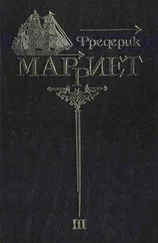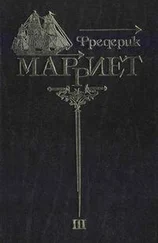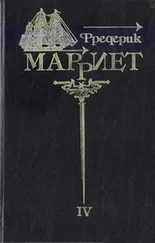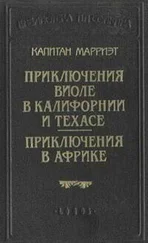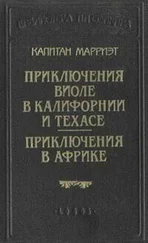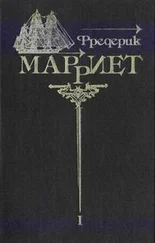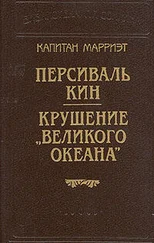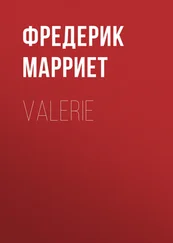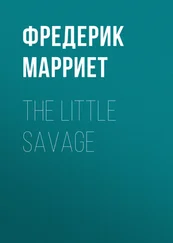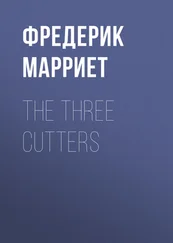Фредерик Марриет - Olla Podrida
Здесь есть возможность читать онлайн «Фредерик Марриет - Olla Podrida» — ознакомительный отрывок электронной книги совершенно бесплатно, а после прочтения отрывка купить полную версию. В некоторых случаях можно слушать аудио, скачать через торрент в формате fb2 и присутствует краткое содержание. Жанр: Путешествия и география, literature_19, foreign_antique, foreign_prose, на английском языке. Описание произведения, (предисловие) а так же отзывы посетителей доступны на портале библиотеки ЛибКат.
- Название:Olla Podrida
- Автор:
- Жанр:
- Год:неизвестен
- ISBN:нет данных
- Рейтинг книги:5 / 5. Голосов: 1
-
Избранное:Добавить в избранное
- Отзывы:
-
Ваша оценка:
- 100
- 1
- 2
- 3
- 4
- 5
Olla Podrida: краткое содержание, описание и аннотация
Предлагаем к чтению аннотацию, описание, краткое содержание или предисловие (зависит от того, что написал сам автор книги «Olla Podrida»). Если вы не нашли необходимую информацию о книге — напишите в комментариях, мы постараемся отыскать её.
Olla Podrida — читать онлайн ознакомительный отрывок
Ниже представлен текст книги, разбитый по страницам. Система сохранения места последней прочитанной страницы, позволяет с удобством читать онлайн бесплатно книгу «Olla Podrida», без необходимости каждый раз заново искать на чём Вы остановились. Поставьте закладку, и сможете в любой момент перейти на страницу, на которой закончили чтение.
Интервал:
Закладка:
After all, mine is a strange sort of Diary. It is not a diary of events, but of thoughts and reminiscences, which are thrown up and caught as they float to the surface in the whirlpool of my brain. No wonder!—events are but as gleanings compared to the harvest of many years, although so negligently gathered into store. I have been puzzling myself these last two hours to find out what a man’s brain is like. It is like a kaleidoscope, thought I; it contains various ideas of peculiar colours, and as you shift them round and past, you have a new pattern every moment. But no, it was not like a kaleidoscope, for the patterns of a kaleidoscope are regular, and there is very little regularity in my brain, at all events.
It is like a pawnbroker’s shop, thought I, full of heterogeneous pledges; and if you would take anything out, experience stands at the counter, and makes you pay her compound interest, while many articles of value are lost for ever, because memory cannot produce the duplicate.
And then I compared it to almost every thing, but none of my comparisons would hold good. After all, thought I, I have been only playing at “What are my thoughts like?” which is a childish game; and how can I possibly find out what my brain is like, when my brain don’t choose to tell? So I rose, and opening the window, lighted my cigar, and smoked myself into a reverie, as I watched the smoke ascending from the chimneys of the good town of Liege.
And this is the city which travellers pass through, describing it as a mere manufacturing town, thought I. A city which has, in its time, produced a greater moral influence upon society than any other in existence—a city that has led the van in the cause of religion and liberty. Liege presents a curious anomaly among the states of Europe. It is the only town and province, with the exception of Rome, which has been, for centuries, ruled by the clerical power. But be it recollected, that at the very period that Christianity was offering up her martyrs at the blood-stained arena of the Coliseum, it was from Liege (or rather Tongres, for Liege was not then built) that she was spreading wide her tenets, unpersecuted and unrestrained, for she was too far removed from idolatry and imposture to be regarded. The province of Liege was the cradle of the Christian faith. From the earliest records there were bishops at Tongres; and it was about five hundred years after Christ, that Saint Monulphe, the reigning bishop, founded the city of Liege. From that time until the French Revolution, this town and these fertile provinces had always remained under clerical authority.
Although these prince-bishops proved that, upon necessity, they could change the crosier for the coat of mail, still, as by endowments and benefactions they increased their revenues, so did they, by the mildness of their sway, induce thousands to settle in their territory; and to increase their population (which was to increase their wealth), they first granted to their citizens those privileges and liberties, which have, upon their precedent, been obtained by force or prayers by others. The very boast of the English of the present day, that every man ’s house is his castle , was the sacred grant of one of the bishops to the citizens at Liege, long before the feudal system had been abolished in our island.
I may also observe, for it is to be gained from the chronicles of this province, that the time at which it may be said that the primitive Christian church first fell into error, appears to have been about one thousand years after the death of our Saviour. And as I thought of all this, and a great deal more, and smoked my cigar, I felt a great deal of respect for the good old city of Liege; and then I wandered back to the country I had passed through the day before, excelling in all lovely scenery. I had seen it before, but it was many years ago; and it may be seen many times without the least degree of satiety. I do not know any scenery which raises up such pleasurable sensations as that of the Valley of Meuse, taking it the whole way from Namur to Liege, and from Liege to Spa. It is not so magnificent as the Rhine, to which it bears a miniature resemblance. It is not of that description creating a strong excitement, almost invariably succeeded by depression; but it is of that unchanging and ever-pleasing, joyous description, that you are delighted without being fatigued, and have stimulus sufficient to keep you constantly in silent admiration without demanding so much from the senses as to weary them. If I could have divested myself from the knowledge that I was in motion, and have fancied that the scene was moving past, I could have imagined myself seated at one of our large theatres, watching one of Stanfield’s splendid panoramas. But the lighted end of my cigar at last approximated so near to my nose, that I was burnt out of my reverie; I took the last save—all whiffs, tried to hit an old woman’s cap with the end of it, as I tossed it into the street, and retreated to the diurnal labour of shaving—of all human miseries, certainly, the “unkindest cut of all”—especially when the maids have borrowed your razor, during your absence, to pare down the apex of their corns.
Chapter Fourteen
I have been reading the “Salmonia” of Sir Humphry Davy: what a pity it is that he did not write more! there are so many curious points started in it. I like that description of book, which, after reading a while, you drop it on your knee, and are led into a train of thought which may last an hour, before you look for the page where you left off. There are two cases argued in this work, which led me into a meditation. The one is, a comparison between reason and instinct, and the other, as to the degree of pain inflicted upon fish by taking them with the hook. Now it appeared to me, in the first question, what has been advanced is by no means conclusive, and although it is the custom to offer a penny for your thoughts, I shall give mine for nothing, which is perhaps as much as they are worth, (I say that, to prevent others from making the sarcastic remark), and in the second question, I think I can assist the cause of the lovers of the gentle art of angling—why gentle , I know not, unless it be that anglers bait with gentles , and are mostly gentle -men.
But before I attempt to prove that angling is not a cruel sport, I must first get rid of “reason and instinct.” Of reason most undoubtedly a philanthropist would reply, “Be it so;” nevertheless, I will argue the point, and if I do not succeed, I have only to hedge back upon Solomon, and inquire, “If man was born to misery as the sparks fly upwards, why are not the inferior classes of creation to have their share of it?”
I do not think that any one can trace out the line of demarcation between reason and instinct. Instinct in many points in wonderful, especially among insects, but where it is wonderful, it is a blind obedience, and inherited from generation to generation. We observe, as in the case of the bees, that they obey the truest laws of mathematics, and from these laws they never have deviated from their creation, and that all animals, as far as their self-defence or their sustenance is concerned, show a wonderful blind obedience to an unerring power, and a sagacity almost superior to reason. But wonderful as this is, it is still but instinct, as the progenitors of the race were equally guided by it, and it is handed down without any improvement, or any decay in its power. Now if it could be asserted that the instinct of animals was only thus inherited from race to race, and could “go no farther,” the line of demarcation between reason and instinct would at once be manifest, as instinct would be blindly following certain fixed laws, while reason would ever be assisted by memory and invention. But we have not this boasted advantage on the side of reason, for animals have both memory and invention, and, moreover, if they have not speech, they have equal means of communicating their ideas. That this memory and invention cannot be so much exercised as our own, may be true, but it is exercised to an extent equal to their wants, and they look no further; that is to say, that if any want not prepared for, or anything should take place interfering with their habits and economy, instinct will enable them to meet the difficulty. There is nothing more wonderful than the application of mechanical power by ants. No engineer could calculate with greater nicety, and no set of men work together with such combination of force. After they have made ineffectual attempts to remove a heavy body, you will observe them to meet together, consult among themselves, and commence an entire new plan of operations. Bees, also, are always prepared to meet any new difficulty. If the sphinx atropos , or death’s head moth, forces its way into the hive, the bees are well known, after having killed it with their stings, to embalm the dead body with wax—their reason for this is, that the body was too large for them to remove through the passage by which it entered, and they would avoid the unpleasant smell of the carcass. It may be argued, that instinct had always imparted to them this knowledge; but if so, they must have had a fresh accession of instinct after they had been domiciled with men: for it is well known that the hole in the tree, in which the wild bees form their cells, is invariably too small to admit any animal larger than themselves, and the bodies of such sized animals they could remove with as much ease as they do the bodies of their own dead.
Читать дальшеИнтервал:
Закладка:
Похожие книги на «Olla Podrida»
Представляем Вашему вниманию похожие книги на «Olla Podrida» списком для выбора. Мы отобрали схожую по названию и смыслу литературу в надежде предоставить читателям больше вариантов отыскать новые, интересные, ещё непрочитанные произведения.
Обсуждение, отзывы о книге «Olla Podrida» и просто собственные мнения читателей. Оставьте ваши комментарии, напишите, что Вы думаете о произведении, его смысле или главных героях. Укажите что конкретно понравилось, а что нет, и почему Вы так считаете.
